Questionok first i got this little white german shepherd pup about 4 months ago, and so far things are going somewhat well...
my first question is what is the best food i could give him?
i went ahead and got one of the foods that was listed in the "Whole Dog Journal's Food List 2008 Approved Foods - Dry", which was the large breed puppy from this brand, http://www.bluebuff.com/ was it a good choice?
also, i'm thinking of next trying the large breed royal canin food...
also i've read everywhere online and from people that innova is the best dry dog food, except it's bad for puppies, but it's the best one for adults. would it be a good choice to feed him that when he's like 1 year old?
ok i also read that supposedly all the foods that are designed for large breed pups, purposely have lower levels of fat so that the puppy does not grow too fast and his joints have time to develop and become strong, is this correct? *main reason why i'm asking, is because the person i got my pup from, is feeding the pups he kept, just normal food and they are almost 20% larger than my puppy right now, and 4 months ago, my puppy was the largest of the group... so is this bad, because i do NOT want to stunt the growth of my puppy, i want him to grow as big as he can, or in the contrary, is my pup growing just as he's supposed to?
i read a funny fact somewhere on the internet that it said it was very BAD to give water to your dog immediately after you took him for a walk or exercised, is this true? because everytime we come back from exercising, he's always very thirsty, but i make him wait until his next meal to drink. or should i let him have water whenever??
also my dog is a "stay outside" dog, i keep him on a very long leash in the yard, and then let him sleep in the porch at night, the thing is his pooping is very inconsistent, he basically goes whenever he wants to, and so far i have not been able to teach him to let me know when he has to go, or to go everytime when we walk him, how can i do this or where can i get more info on techniques to use?
- so u get an idea, sometimes i come home and he'll bark at me, so i'll go walk him to see if he poops, and nothing, and the other 2-3 times that we regularly walk him a day, he won't poop either. so we end up taking him out about 4-6 times in total a day and he won't poop in any of those...
AnswerThere is very little in the way of facts available to the average person on choosing a dog chow. Much of what you read is marketing hype or somebody repeating what they found likely. As far as a real test, feeding different dogs different diets and keeping track of how they do over a long period, I have never seen any such results. Many strong opinions are based on the flimsy evidence you have seen with your dog and the ones retained by the breeder. I doubt the difference in the food is the cause of the difference. It could also have to do with how much they were fed and individual growth rates. I have nothing to base an opinion on as far which is best, Blue Buffalo, Royal, Canin, or Inova. All the rating systems are based on the ingredients. They have no studies to back up what they call good and bad ingredients. It is all speculation, and many dogs thrive on chows full of bad ingredients. I doubt many of those giving you opinions on them have anything either, except what they get a commission on when they sell it. I have seen answers here where the ''Expert'' included the URL to her web site where you could buy what you needed. Others may not be so obvious.
I could tell you the Pro Plan I feed is the best because my dogs always do well on it and I have seen thousands of other dogs thriving on it. However, I know of other large, successful programs feeding Iams, Science Diet, Purina 1, etc. I haven't seen their data, but I know the large dog guide schools have tested different chows. They have all settled on one of common brands. They also are very careful to keep the puppies lean and make an early switch to adult chow. Their practices are based careful observation of thousands of dogs over their entire working life including hip X-Rays on all of them at a year old. I trust them much more than anonymous ''experts'' on the net.
You are correct about not feeding a growing large breed too rich of a diet. Even the large breed puppy chows are formulated for fast growth. The American agricultural feed industry knows how to produce fast growth. Unfortunately, it is often at the expense of sturdy joints.
You may be doing a better job keeping you puppy lean. Evaluate the dog as illustrated in this link, http://www.longliveyourdog.com/twoplus/RateYourDog.aspx You may want the vet to confirm your judgment. Adjust the dogs food and exercise as needed to reach its ideal body condition. Some German Shepherds and other breeds may refuse to eat enough to completely hid their ribs. As long as you are feeding a concentrated, meat based chow, the best thing is to accept it.
I would switch your puppy to an adult chow now with the same source of protein as the Blue Buffalo. If your puppy ever develops an allergy to say lamb, it won't make any difference if it was eating Purina 1, Iams, Blue Buffalo. Royal canin, etc. You could then switch to a chicken or beef based one. Dogs develop allergies to what they eat. Chicken and corn allergies are common, not because they are bad, but because they are common. People that have fed their dogs several different proteins may be stuck with expensive, hard to find duck or venison chows. the less rich diet results in slower growth, but does not stunt growth. The dog just reaches its genetically programed size later and has the joints it needs for a long, active life.
Go ahead and let your dog have a drink when it needs one. That sounds like one more untested myth.
A short walk should stimulate your dog to have any bowel movement due soon. It could be holding it if you have caught it inside and punished it.
Much of housebreaking is not training the puppy, but making it easier for your puppy, you, and your carpet while its body to catches up to its instincts. At around 8 weeks when the puppy goes to its new home, the time from when it realizes it has to go, and when it can't wait any longer is a matter of seconds. Only time will fix that. You can hardly be expected to be attentive enough to avoid all accidents. There is no sense punishing the puppy for your inattention. It is not fair to punish you either, but you still have to clean it up if you didn't have the puppy outside in time.
Housebreaking starts before you get home with the new puppy. If you don't have a crate, buy one. I prefer the more enclosed, den like plastic ones. Skip the bedding. At first it gets wet, and later it can be chewed into choking hazards. A wire grid in the bottom will help keep the puppy up out of accidents at first. They are available with the crates, but expensive and hard to find. A piece of closely spaced wire closet shelving from a home supply place is cheaper. I am now using a plastic vegetable bin with plenty of holes drilled in the bottom. It helps block off part of the crate for the smaller puppy. If you already have a metal crate, covering it may help. Just make sure you use something the puppy can't pull in and chew. Dogs that start out in crates as little puppies, accept them very well. Never leave an unattended puppy loose in the house. If nobody can watch it, put it in the crate. I suggest letting the dog have its crate all its life. A crate needs to be just big enough for a dog to stretch out in.
Choose a command and spot you want it to use. The less accessible to strays, the less chance of serious disease. If it is a female, choosing a non grassy spot will avoid brown spots later. When you bring it home, take it to the spot and give it the command in a firm, but friendly voice. Keep repeating the command and let the puppy sniff around. If it does anything, praise it. Really let it know what a good dog it is and how much you love it, and maybe a treat. Note, being out there not only means you can praise it, but it also keeps it from being snatched by a hawk. If it doesn't go, take it inside and give it a drink and any meals scheduled. A young puppy will need to go out immediately afterward. Go to the spot and follow the above routine. Praising it if it goes is extremely important. If it doesn't go, take it back inside and put it in its crate and try again soon. Do not let it loose in the house until it does go.
At first it is your responsibility to know and take the puppy out when it needs to go. It needs to go out the first thing in the morning, after eating, drinking, and sleeping. If it quits playing, and starts running around sniffing, it is looking for a place to go. Take it out quickly. You will just have to be what I call puppy broke until it is a little older. How successful you are depends on how attentive you are.
By the time most dogs are about 3 months old, they have figured out that if they go to the door and stand, you will let them out. The praise slowly shifts to going to the door. Some people hang a bell there for the dog to paw. If your dog doesn't figure this out, try praising it and putting it out if it even gets near the door. When you catch it in the act, give it a sharp ''Ah, ah, ah!'' and take it out. Clean up accidents promptly. I mostly keep the little puppies out of the carpeted rooms. Still I need the can of carpet foam sometimes. First blot up all the urine you can with a dry towel. Keep moving it and stepping on it until a fresh area stays dry. A couple big putty knives work well on bowel movements. Just slide one under it while holding it with the other. This gets it up with a minimum of pushing it down into the carpet. This works with even relatively soft ones, vomit, dirt from over turned house plants, or anything else from solids to thick liquids. Finish up with a good shot of carpet foam. Note, do not let the puppy lick up the carpet foam. Once the dog is reliably housebroken, your carpet may need a good steam cleaning.
Many people strongly strongly push cleaning up all evidence of past accidents. I am slower to suggest that. Dogs will return to the same spot if they can find it. When you see one sniffing the spot, that is your clue to run it out.
At your dog's age, it will be longer after eating before it needs a bowel movement.

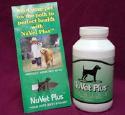 recipes for kidney failure canine ; canine renal recipes ; canine supplements ;
QuestionHi there. I ran across this website while doing
recipes for kidney failure canine ; canine renal recipes ; canine supplements ;
QuestionHi there. I ran across this website while doing
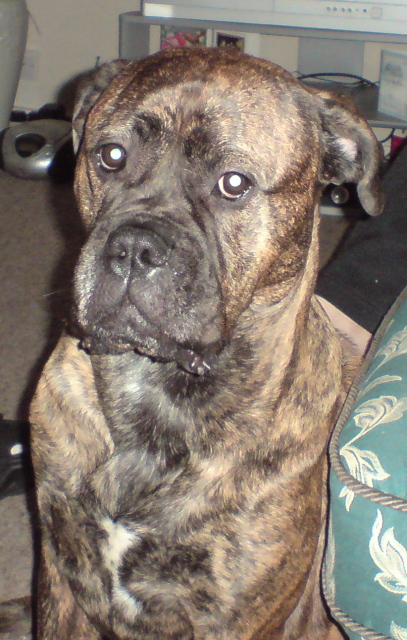 Diet/Nutrition
QuestionKaiya
QUESTION: I have just become a own
Diet/Nutrition
QuestionKaiya
QUESTION: I have just become a own
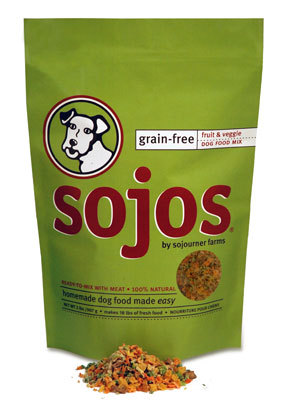 Toy poodle urinary crystals diet;
QuestionQUESTION: Our toy poodle is 11 years old, and h
Toy poodle urinary crystals diet;
QuestionQUESTION: Our toy poodle is 11 years old, and h
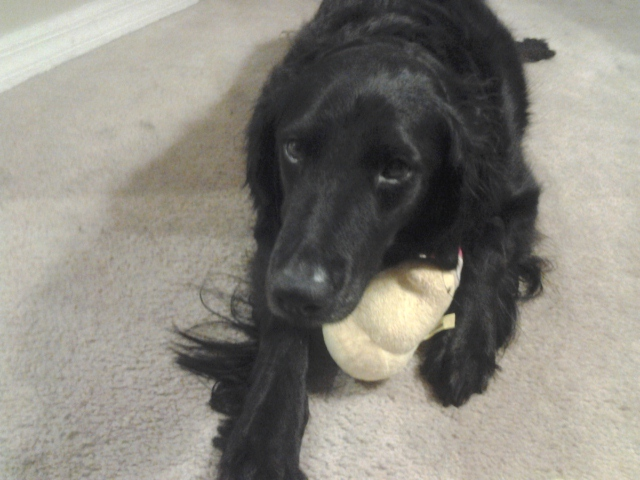 Food that I can feed all 3 of my dogs ..
Question
Throw it already! MINE
I am hopin
Food that I can feed all 3 of my dogs ..
Question
Throw it already! MINE
I am hopin
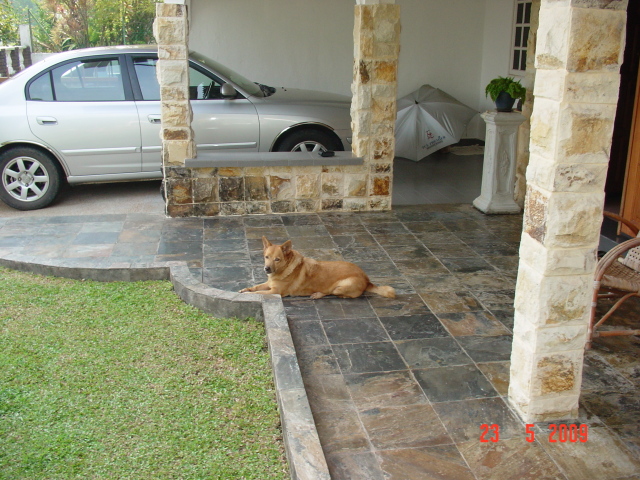 dog food problem
Question
Diana
Dogs age: 15
Last vet visit: 2 weeks ago
dog food problem
Question
Diana
Dogs age: 15
Last vet visit: 2 weeks ago